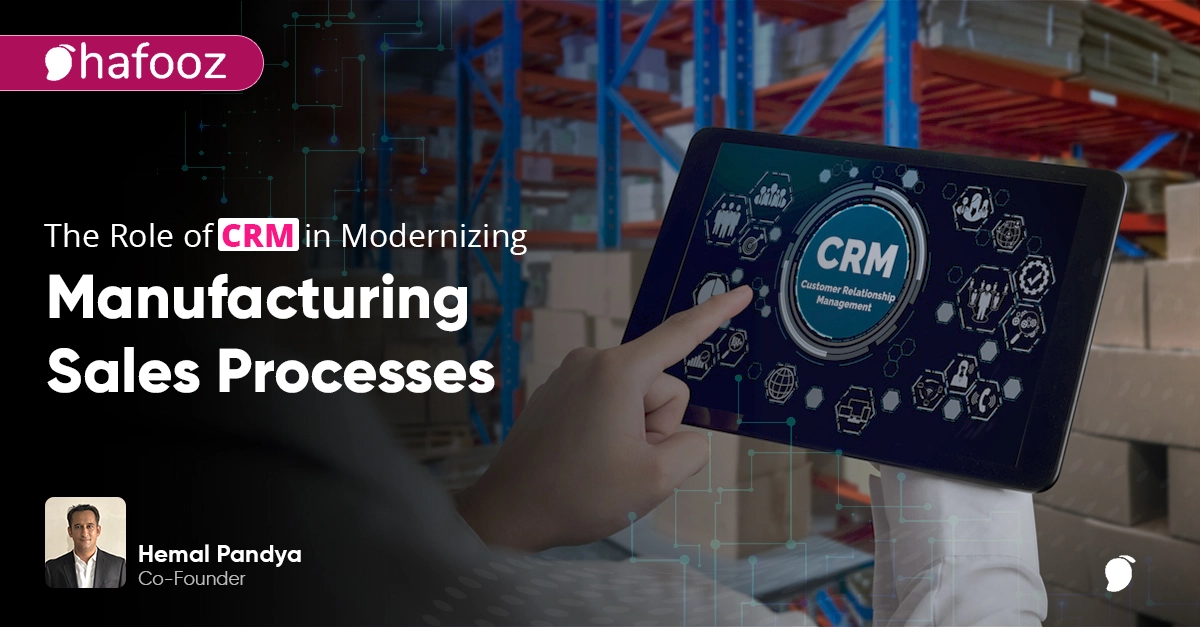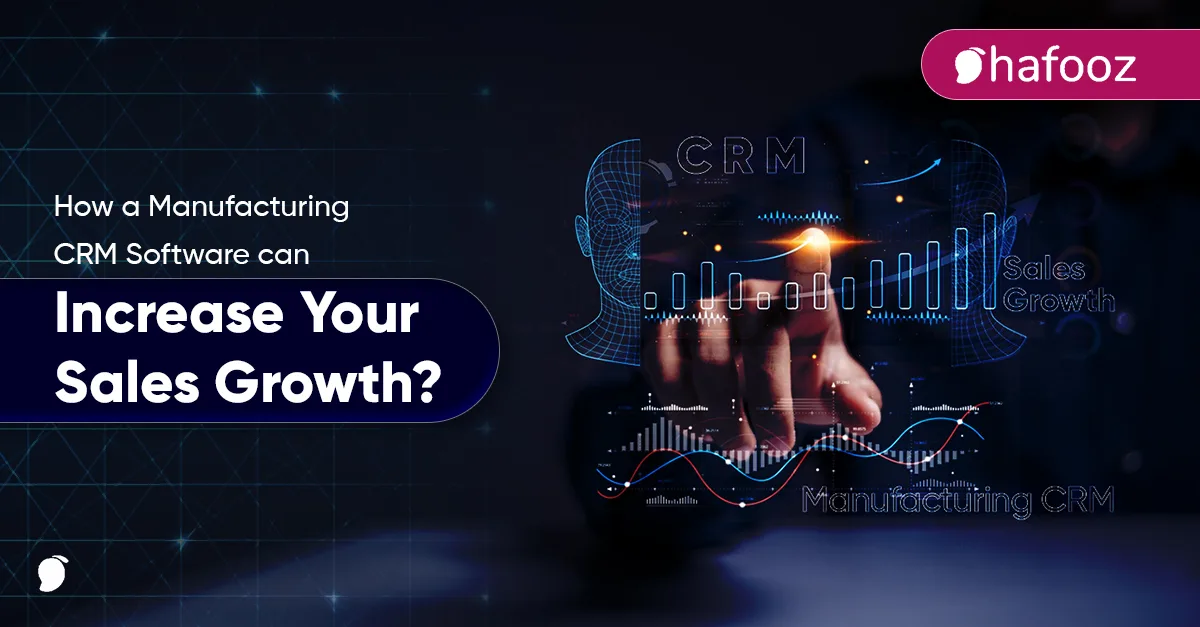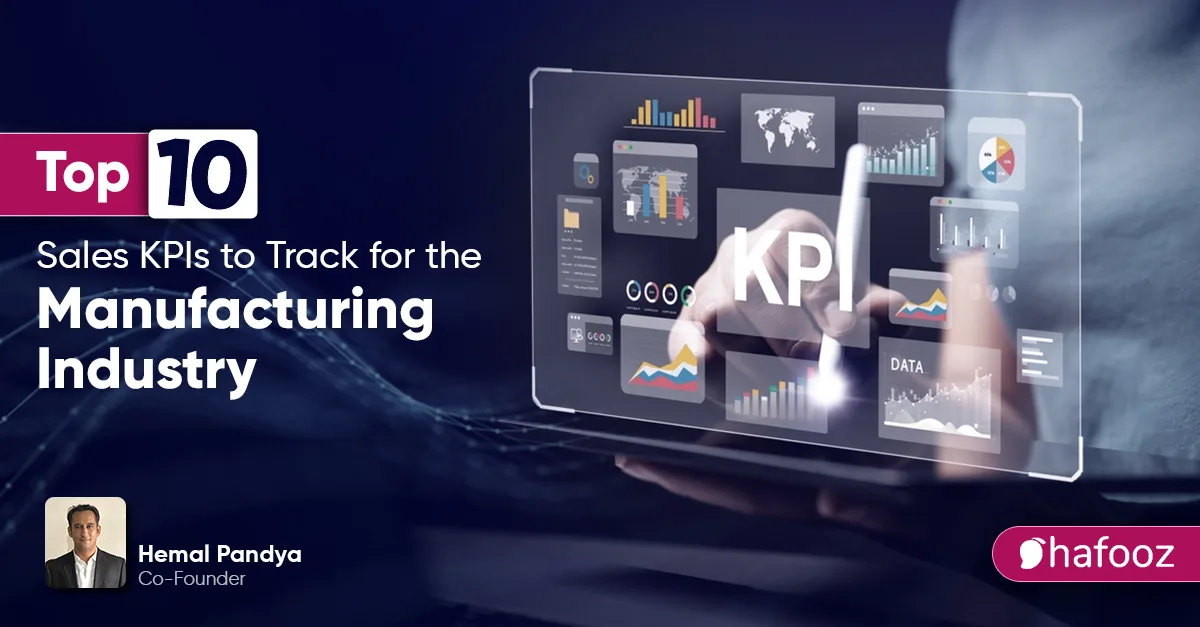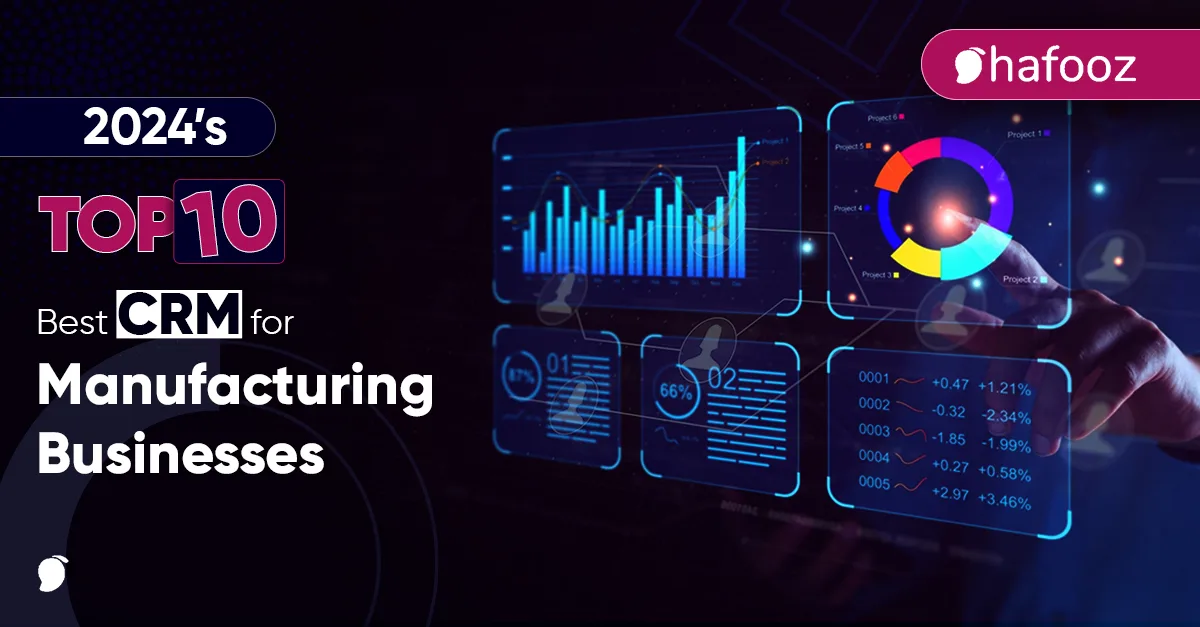What is your ultimate business goal as a manufacturer? Unsurprisingly, most of you would answer, ‘Generating More Sales.’
But is lead conversion as simple as that?
With late nights of endless manual entries and constant hang-ups from cold calling at the worst times, it does not really look promising.
So, how do you avoid being pushy but drum up your customers to increase sales? Use the power of manufacturing CRM software to take control of your sales funnel.
Dig into the blog to see how CRM lead management can streamline your lead conversion rates.
What's on this page:
What is Lead Conversion?
Lead conversion is the marketing and sales process of converting leads or prospective customers into paying customers. Leads are turned into customers when you nurture them through their buyer’s journey.
The nurturing tactics include:
- Behavior automation
- Retargeting your customers
- Email marketing ( and many more)
A ‘Lead’ goes through several stages before becoming a customer. Nurture your leads at every stage, from marketing-qualified leads to sales-qualified leads. (and in between parameters)
You can calculate your lead conversion rate by dividing your number of leads by the number of conversions multiplied by 100.
Lead Conversion Rate = (Total number of Leads/ Total number of Conversions)*100
Conversion rate is an important metric that helps you get insight into your customer journey and make informed business decisions. But the question is, despite several marketing strategies, why opt for CRM for manufacturing companies? Let’s have a look.
Why Does the Manufacturing Sector Need CRM?
Today, buyers are more informed than ever, thanks to abundant information. Moreover, they are no longer in the habit of waiting.
You might lose your customers in the blink of an eye! If – you are not familiar with your buyer’s needs and their path to purchase. (The Buyer’s Journey)
So, tailor your sales process according to your buyer’s journey. Your buyer won’t be prospected, demoed or closed when your product adds zero value to their needs.
For Example
A manufacturing business owner excels at engaging with potential customers and managing sales records. However,
- The products do not reach all the interested customers, leading to missed opportunities and unsatisfied prospects.
- The prospective customer leaves, as you forgot constant follow-ups.
- Or the word-of-mouth marketing did not work.
Frustrated, the manufacturer looks for solutions and new suppliers. But what if there was a more comprehensive approach? A way to avoid such issues from arising in the first place?
Here’s when CRM for manufacturing steps in. Want to know more about how manufacturing CRM solutions can streamline your lead conversions?
Then, let’s dig in.
5 Steps to Start a Lead Conversion Process with CRM
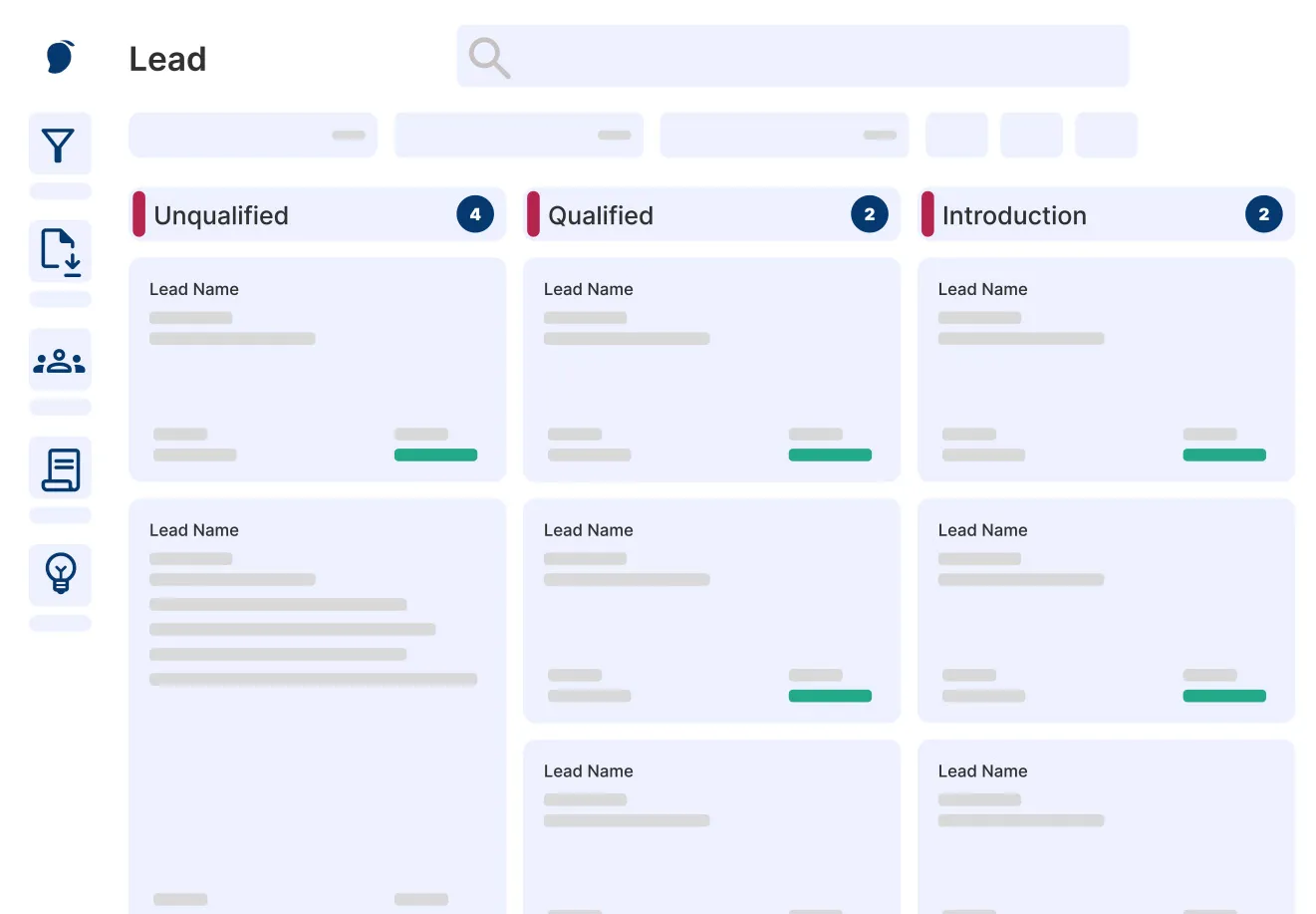
Congratulations. You have done it.
Your marketing strategy? – Flawless.
Your contact forms? – More people signing up than you reach out to.
Your sales? – Not quite on par!!
You have thrown all your resources into lead generation but are still stalling in converting leads. So what’s missing? A Strategy! Here are five steps to make lead conversion as simple as the concept.
Step 1: Define Your Objectives
Conversion will never be a simple, clear-cut process. Therefore, you first define your objectives to make it easier. Ask yourself questions like:
- What is your end goal with CRM lead management?
- How will manufacturing CRM solutions help you understand your target market?
- How will you utilize CRM to tailor sales and marketing strategies?
- What are your current bottlenecks in your lead conversion process?
- How will CRM for manufacturing address these challenges?
Define your end goal. Determine why you want a CRM for your manufacturing business.
Step 2: Select the Right CRM
Once you know your business objectives, search for a CRM that fits your needs. There are several CRM options available in the market. However, you must ensure that your chosen CRM includes lead management, sales automation, and other features.
If the use of CRM in manufacturing industry is perfect, your lead conversion rates will speak up automatically for your business.
Step 3: Data Migration
If you want to improve your lead conversion, listen to your data. Numbers may feel less personal than your sales rep’s charisma and instincts. But, in the 21st century, user sales data is more crucial.
So, gather existing customer data, remove duplicates to ensure accuracy, and migrate it to your new CRM platform.
You can start by investigating your conversion process to better understand your data. Find the most churn in your sales process or the number of times your sales reps followed up with individual leads.
Step 4: Customization
Once you have migrated your data, it is time to customize your CRM platform. A CRM holds a mountain of potential waiting to be unleashed.
So, customize your platform the way you want. The good news is that a good CRM offers several features, from prioritizing leads to creating automated workflows and follow-ups.
Step 5: Training
Your team needs to feel supported throughout the process. So, conduct training sessions for all your sales and marketing team members and ensure they understand how a CRM works.
Also, provide ongoing support and resources. Help them address any questions to challenges that may arise.
Remember that the marketing is always changing. So why shouldn’t your lead conversion tactics? If you think your current marketing strategies are not working, change them.
CRM for manufacturing is a tactic that can help you evolve with the growing needs of the manufacturing industry.
8 Ways CRM Boost Lead Conversion in the Manufacturing Sector
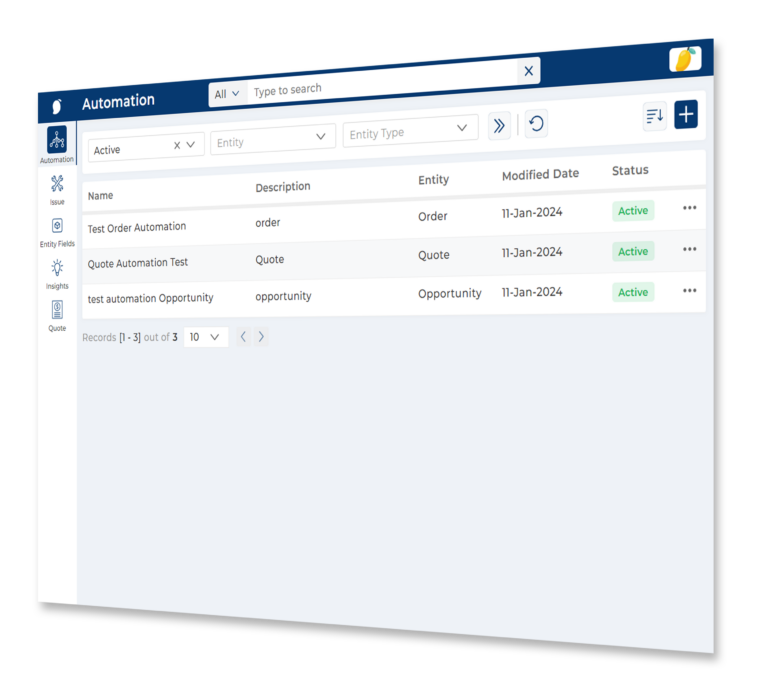
Leads come from anywhere. They may come from cold calls, billboards, social media, search engines and many other tried-and-tested tactics. But what are the odds that you are still struggling to convert leads? Every tactic works differently. Some succeed, some won’t.
Here are 8 ways CRM lead management can boost your lead conversion.
1. Automated Lead Capture and Organization
You need a healthy sales funnel to generate customers. However, most sales reps struggle to turn leads into loyal customers. They are commonly trapped in generating and qualifying leads, leaving them no time to speak with prospective customers.
CRM provides a complete package of lead management tools.
- You can capture leads from different sources, such as web forms, chatbots and social media.
- The platform ensures that you overlook or lose 0 customers.
- You can easily track, organize and convert leads.
Thus, the all-in-one-place platform gives your sales team time to focus on other tasks while maximizing your conversion rate.
2. Automated Lead Generation
How much time is your sales team currently spending on manually qualifying leads? Are they confident that they are prioritizing the most promising leads?
Your sales team may not know what each customer wants and needs. But chatbots, like Revenue Bot, do. Bots help automate lead generation.
They capture and qualify leads via conversations. How? Chatbots engage with potential customers, collect valuable information and identify high potential leads.
So, don’t let traditional and manual lead generation methods lead you to missed opportunities. CRM lead management features let your team capture, organize, and convert leads effectively.
3. Automated Lead Nurturing Campaigns
Imagine you, prospective customers, receiving personalized emails every week. ‘Welcome to hafooz; we are excited to streamline your sales process.’ or ‘Close more deals with our powerful tools.’
Tailored and relevant content builds trust in your customers. This nurtures them into qualified leads and increases conversion opportunities during the buying journey. Automating your lead nurturing process also saves time and resources.
4. Sales Funnel Optimization
A sales funnel helps you understand your potential customer’s buying journey. It helps you know what they are thinking and doing at each stage of the purchasing journey.
Traditionally, your sales team could be ‘ghosted,’ or the lead may go cold after a discovery call. Moreover, gaining loyalty from a single customer could take months, thus increasing conversion rates and revenue.
But a Revenue Bot helps optimize this sales funnel. It guides customers through the buyer’s journey and provides product recommendations. The bot also offers personalized suggestions and assists in the decision-making process. Ultimately increasing customer rates.
5. Lead Analytics and Reporting
Errors and gut feelings are common features of transitional lead convention tactics. Often leading to a limited ability to make proactive decisions, inefficiencies and missed opportunities.
However, with CRM for manufacturing, you can stop guessing and start knowing. Lead analytics and reporting provide valuable insights. You can track key metrics, such as lead conversion rates, lead source effectiveness and sales cycle durations.
Allowing your sales team to focus on improved results with continuously optimized lead management strategies. Letting you turn data into actionable insights for a more effective leads funnel.
6. Automated Opportunity Generation
Lead generation is finding potential customers and leads for your business. It is like bread and butter. While traditional methods may work wonders for some, automated opportunity generations can increase your customer conversation base to the next level.
With chatbot features like production selection, customers can select and make informed product decisions. Customers are engaged to make choices directly through the chat interface, creating a seamless and engaging buying experience.
7. 360-Degree Customer View
The worst thing you can do in sales is to not know your customers. Nothing motivates customers to buy like understanding them on a deeper level.
Of course, one-to-one communication levels cannot be matched to any other sales tactic. But practically for how long will you remember the conversations? Or their behaviors and preferences?
A CRM provides a panoramic view of your customer data, interactions, preferences, behaviors, needs, and more. With this view, you can gain insights and deliver personalized experiences that resonate with your customers.
8. CRM Decision-Making
Want to strengthen ties with suppliers and partners? Want to track sales and marketing activities effectively? And what about your ROI? (Return on investment)
A CRM for manufacturing will streamline your lead conversions and enhance your CRM decision-making process by:
- Converting fragmented data into data-driven insights
- Automate lead scoring
- Enhance sales forecasting
- Predict market trends through analytics
- Streamline communications and follow-ups
- Boost customer lifetime value
- Deeper customer engagement
Enhance your sales strategies, align production with demand, and ultimately convert more leads into paying customers with manufacturing CRM solutions.
Improve Your Lead Conversion with hafooz
Lead conversion for manufacturing businesses is ‘simple in theory’ but ‘difficult in practice.’ Manufacturers waste thousands of dollars engaging the wrong audiences that never convert.
While traditional tactics still work, they may not yield the desired results. So, keep what works and discard the rest.
So, no matter your lead conversion tactic this week, sign up for a free one-month trial at hafooz. (Don’t worry, you won’t need your credit card!)


